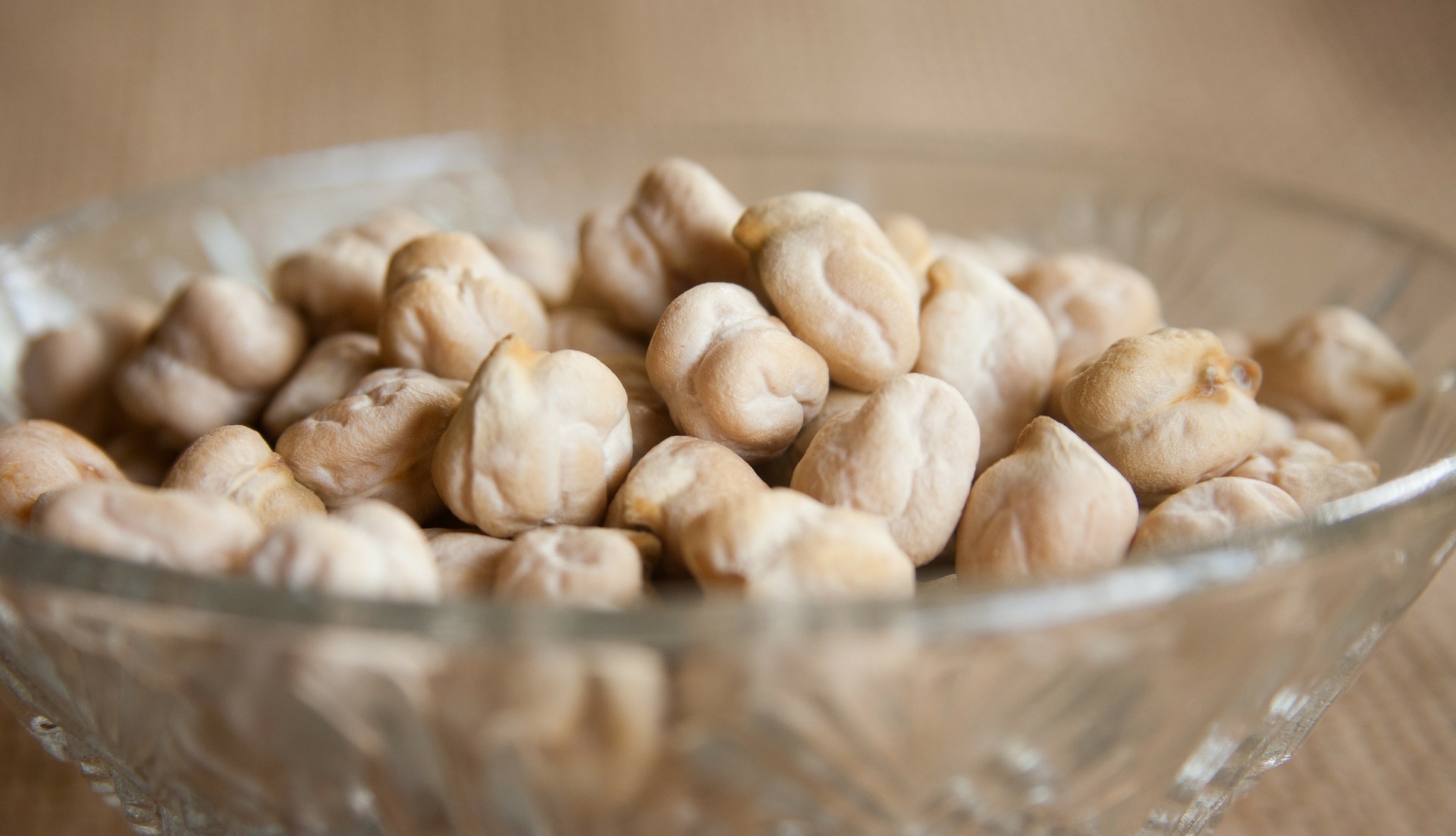- Not a substitute for professional veterinary help.
Yes. Chickpeas are rich with fibre, which helps dogs feel fuller faster and longer. They’re also a great source of protein, though they shouldn’t be used as a replacement for animal protein. Avoid chickpeas in hummus form, as well as canned chickpeas. The latter contain preservatives that are harmful to your dog’s digestive system.
Serving Ideas
Your dog will enjoy chickpeas in small amounts after they’ve been cooked without seasonings. Dogs can eat chickpeas:
- Blended or whole, mixed with an animal protein and vegetable
- Blended or whole and served as a snack
- Replacing regular flour with chickpea flour in recipes
What Else Can Your Dog Eat?
We offer a collection of articles on foods that are safe, dangerous or even toxic for dogs to eat, including vegetables, dairy, bread, and junk food. There is a wide variety of “human food” that is healthy for your dog to eat, while others are considered toxic and dangerous. Check out which fruits and veg are good for your dog and which spices and seasonings are ok to give to your furry little buddy. We’ve created these articles to ensure you’re informed on feeding your dog a wonderfully varied diet while learning the limitations of a dog’s sensitive digestive system.



